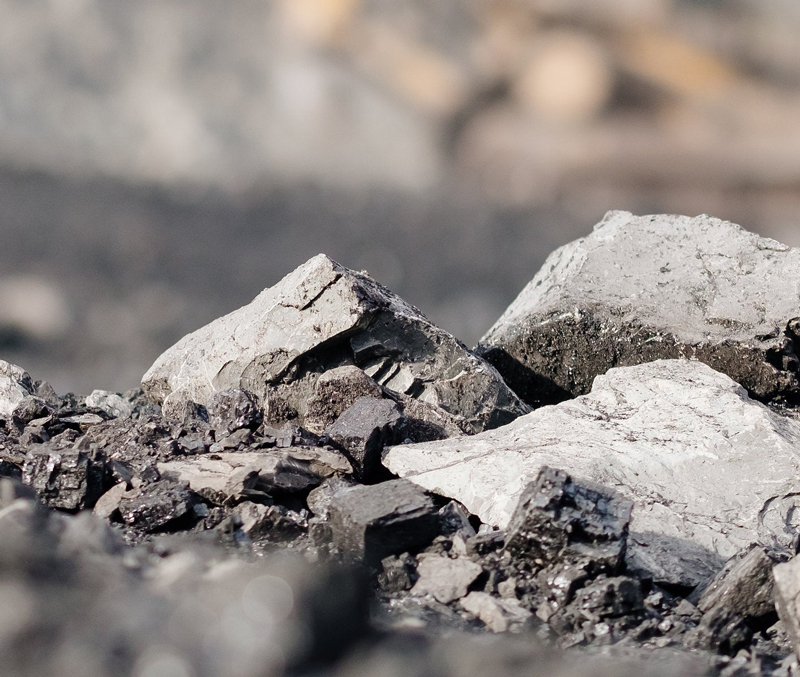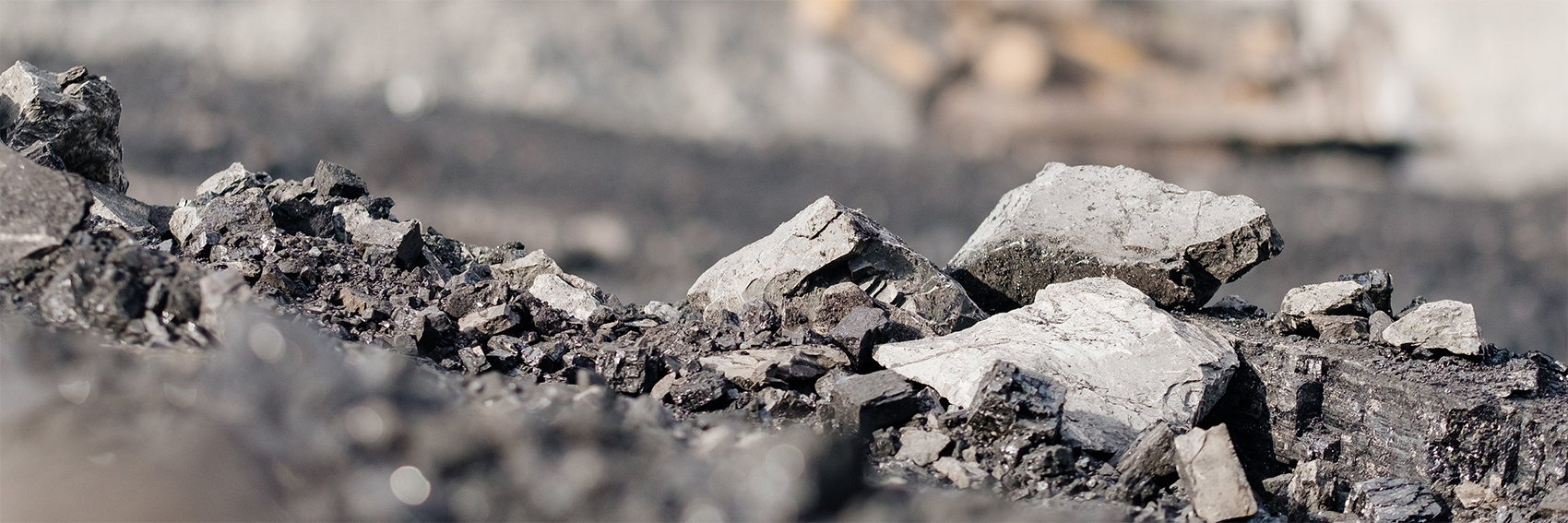

Coal
Coal is a hard rock which can be burned as a solid fuel. It contains mostly carbon but also contains hydrogen, sulphur, oxygen and nitrogen.
It is a sedimentary rock formed from peat, by the pressure of rocks laid down later on top. Peat, and therefore coal, is formed from the remains of plants that lived millions of years ago.
Coal can be burned for energy or heat, like in generating steam to turn the turbines of power stations, or in the manufacturing processes used for making steel and cement.
There are several different types of coal
Black coal used to generate electricity is called thermal coal, energy coal or steaming coal, and there is an abundance of this high-quality black coal in NSW. In fact, NSW coal is considered some of the highest quality coal, which is why it is in such strong demand in our region of the world.
There are several NSW regions with large thermal coal deposits and world-class mining operations extracting coal for local use and for export markets. There are operating mines south of Newcastle near Lake Macquarie, further northwest of Newcastle in the Hunter Valley and Gunnedah regions, and near Lithgow and Mudgee to the west of Sydney.
Some NSW coal mines provide coal to nearby NSW power stations including to Bayswater, and Eraring in the Hunter region and the Mt Piper Power Station near Lithgow to the west of Sydney. This coal plays a fundamental role in supporting homes and businesses across the economy, with up to 80 percent of NSW electricity being generated by these coal-fired power stations. That helps to keep the lights on at home and power businesses across Sydney and regional NSW.
Much of the NSW thermal coal we mine is exported, mainly to countries in South East Asia, providing a stable and reliable source of energy for major economies and trading partners including Japan, Korea, China and Taiwan, as well as generating valuable export revenue for our economy here in NSW. NSW thermal coal is also in increasing demand from countries like India, Vietnam and Bangladesh as they seek to expand their own electricity networks to provide energy to more and more of their people for the first time.
Some of the highest quality black coal is also used to make steel and cement. Known as coking coal or metallurgical coal. In NSW this high-quality coal is primarily mined in the Southern Coalfields of NSW, in the Illawarra region south of Sydney. This coal is used to create coke, one of the key inputs for the production of steel, alongside iron ore.
In NSW, local coking coal is used to supply the Port Kembla Steelworks where Bluescope makes steel products for local and export markets. NSW coking coal is also exported to our trading partners in Asia to make the steel and cement needed to help meet growing demand as urbanisation and modernisation across South East Asia drive the construction of more homes and buildings, transport and infrastructure.
Brown coal is not mined in NSW.
The future role of coal
Demand for energy continues to grow as the world’s population grows. A mix of energy sources will be needed to power homes and businesses into the future.
Renewable energy is an important and growing part of the global energy mix. Coal also has a continuing and important role, with declines in demand for coal in the United States and Europe offset by an increase in coal demand from developing economies, including in Southeast Asia.
Many of these countries will continue to rely upon coal-fired power to help provide electricity as they also continue to develop and expand their own renewable energy capacity. NSW export coal is well placed to meet this demand.
Coal will also continue to be in demand for steelmaking, even as potential alternative steelmaking methods are developed, providing further export opportunities for NSW metallurgical coal exporters.
You can learn about our industry’s investment in the research and development of low emissions technologies, on the LETA website.
